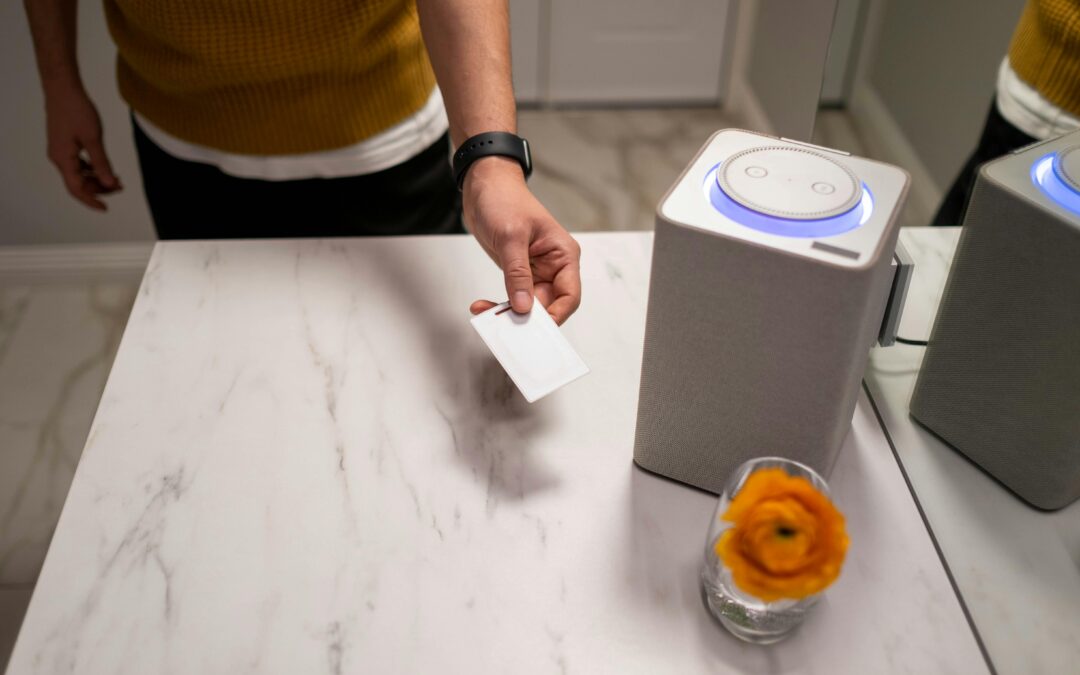When was the last time you walked into a room and the lights turned on without you flipping a switch? Or when your coffee machine greeted you with a fresh brew right as your morning alarm went off? These moments, once considered futuristic luxuries, are now everyday realities made possible by smart home and automation electronics.
The rise of electronics in home automation has completely redefined comfort, convenience, and efficiency. Beyond just gadgets that make life “easier,” we’re seeing an entire ecosystem that blends technology, intelligence, and personalization to create homes that think and respond to our needs. Let’s dive deeper into how smart home electronics are shaping the way we live—and why this movement is only getting started.
What Exactly is Smart Home & Automation?
At its core, home automation means using electronics and digital systems to monitor, control, and optimize everyday household tasks. Think of it as giving your home a brain. Instead of you adjusting every device manually, smart systems take over, working in sync to improve how you experience your living space.
From voice-activated assistants like Amazon Alexa or Google Home, to smart thermostats, intelligent lighting systems, and automated security solutions, these devices create a connected environment where electronics work together seamlessly.
But the real magic lies not just in individual devices, but in how they communicate. Modern smart homes use platforms that allow different electronics to share data and anticipate your habits. The result? Homes that not only serve you but also learn from you.
Why Smart Electronics Are More Than Just “Cool Gadgets”
A lot of people think smart home technology is just about fancy toys—but the truth runs much deeper. These systems are shaping the future of energy use, safety, and lifestyle design. Let’s break down a few major benefits:
1. Energy Efficiency That Saves Money
Smart thermostats, connected plugs, and intelligent lighting systems monitor usage and adjust settings to reduce waste. For example, a smart thermostat can learn your daily routine, lowering the temperature when you’re away and warming things up just before you return. Over time, these adjustments can cut energy bills significantly.
2. Enhanced Security and Peace of Mind
Home automation electronics go beyond traditional locks and alarms. Smart cameras, door sensors, and video doorbells provide real-time updates to your phone, no matter where you are. It’s like having a digital guard on duty 24/7.
3. Convenience That Fits Your Lifestyle
Imagine saying, “Movie time,” and having your blinds close, lights dim, and sound system power on—all at once. That’s the convenience of electronics designed for automation. It’s not just about saving time; it’s about creating moments that feel effortless.
4. Personalization and Adaptability
Smart electronics don’t just respond to commands—they adapt to patterns. For instance, lighting systems can adjust brightness based on natural sunlight levels, while smart speakers can recommend playlists that fit your mood. The more you use them, the smarter they become.
How Electronics Drive the Smart Home Revolution
The foundation of smart home automation lies in electronics engineering and connectivity. Here’s how the pieces come together:
- Sensors detect motion, temperature, sound, and light levels.
- Microcontrollers and processors interpret this data, making decisions on what actions should follow.
- Wireless communication protocols (like Wi-Fi, Zigbee, or Bluetooth) allow devices to talk to each other.
- AI integration helps systems predict user behavior and automate routines without constant input.
Without these advancements in electronics, the concept of home automation wouldn’t exist. It’s not just about programming a device—it’s about building an ecosystem where electronics form the backbone of smarter living.
The Future of Smart Home Electronics
We’re only scratching the surface of what’s possible. Industry trends show that smart homes will move from being device-based to ecosystem-driven. Instead of managing separate apps for each gadget, future homes will rely on centralized AI systems that orchestrate all devices harmoniously.
Even more exciting is the push toward sustainable living. As energy costs rise and climate change becomes a pressing issue, electronics in smart homes will play a critical role in monitoring and reducing consumption. Think solar-powered smart grids, water usage sensors, and predictive systems that minimize waste.
Additionally, health-focused automation is emerging. From air quality monitors to smart beds that adjust to your sleeping position, electronics will help create homes that don’t just respond to you but actively promote well-being.
Getting Started with Smart Home Electronics
If you’re new to this world, it’s easy to feel overwhelmed by the sheer number of devices on the market. The key is to start small and scale gradually. Here are a few entry points:
- Smart Plugs & Bulbs: Affordable and easy to set up, these instantly give you control over basic electronics and lighting.
- Smart Speakers: Voice assistants serve as the hub for many automation setups, helping you manage multiple devices.
- Security Systems: Cameras and smart locks provide immediate value by boosting safety.
- Smart Thermostats: A practical way to reduce energy bills while increasing comfort.
As your comfort level grows, you can expand into more advanced systems like smart blinds, irrigation controllers, or even fully integrated entertainment systems.
For those looking to explore a wide selection of automation-friendly electronics, check out our curated collection at Gadgets Domain.
Are Smart Homes Worth It?
Smart home and automation electronics aren’t just about convenience—they’re about creating a lifestyle that’s efficient, secure, and adaptable. In today’s world, where time and energy are precious resources, the ability of electronics to automate repetitive tasks frees us to focus on what truly matters.
The future is not about homes filled with random devices, but about intelligent ecosystems where electronics work together to anticipate our needs. And the best part? This future isn’t decades away—it’s already here.
So, the real question is: How “smart” do you want your home to be?
Ready to start your journey into smart living? Explore the latest smart home electronics and automation solutions at Gadgets Domain. Discover products that will transform the way you live today, while preparing you for the connected homes of tomorrow.

